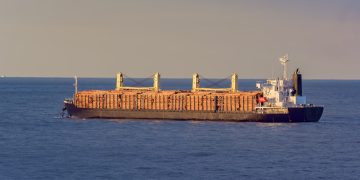In light of the controversial issue over the ban of heavy fuel oil (HFO) use in Polar regions, Methanol Institute urges shipping to apply methanol as a “safe, clean” alternative marine fuel.
To remind, IMO member states in late November agreed amendments to MARPOL regulations to restrict the use of Heavy Fuel Oil in Arctic waters, changes that have come in for criticism from environmental groups thanks to exemptions and waivers that may not see a comprehensive ban on HFO come into effect until mid-2029.
Following the above, Methanol Institute stated that the bunkering guidelines developed by the European Committee for Standardisation (CEN) put methanol in “pole position” as an Arctic marine fuel.
Namely, MI claimed that methanol, which emits no sulphur, very low particulate matter (PM) and less CO2 than convention bunker fuel could be an effective solution.
The shipping industry knows that the use of HFO in the Arctic is unsustainable and questions around the black carbon content of VLSFO raise serious questions that need to be addressed.Being miscible in water and biodegradable means Methanol has negligible spill risk and it’s possible to use as a marine fuel with close to zero particulate matter emissions.
…says Methanol Institute Chief Operating Officer Chris Chatterton.
As explained, used as a marine fuel, conventional methanol emits no sulfur, very low PM and according to data from MAN Energy Solutions has carbon dioxide emissions around 20% lower than conventional marine fuel oil.
In oder to meet IMO NOx Tier III requirements, methanol can be blended with water which brings the ship into compliance without the need for expensive exhaust gas after treatment. In the longer term the production of renewable bio-Methanol provides a climate-neutral pathway for the industry to adopt sustainable marine fuel.
…. Chris Chatterton concluded.































































